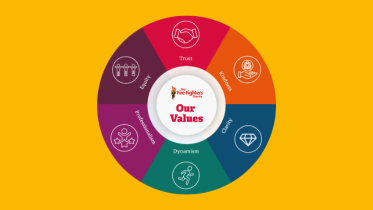Could you explain a little about the condition you live with and how it impacts you day to day?
I developed myalgic encephalomyelitis (ME) after a viral infection in December 2018. This left me suffering with brain fog, fatigue and left leg weakness amongst other symptoms, but I learnt to manage my symptoms and was coping well working in Intensive Care as a Nurse.
Unfortunately, in January 2021 I got Covid. It had a huge impact in my life and turned into Long Covid. I was unable to do basic tasks, had breathing issues, swallowing difficulties, couldn’t read or focus, couldn’t speak properly and suffered hearing loss – to name just a few issues.
The brain fog, fatigue and left leg weakness also became much worse. I was off sick for 17 months and under countless specialists and rehab teams. I was eventually able to return to nursing in a different department on reduced hours. However, I would spend all week preparing and recovering from two days at work, unable to socialise or fully care for my children. I took the difficult decision to leave the NHS and all that I knew to find a better work life balance and manage my health condition and disability. Hence, now working for the Fire Fighters Charity.
In recent months, the leg weakness has worsened, and my walking has been significantly impacted. I use a crutch to help me walk short distances otherwise I use an electric wheelchair. I have additional aids around my house to try and maintain as much independence as possible.
My symptoms fluctuate throughout the day, I have to pace myself, plan my days/weeks, prioritise what I am going to use my limited energy on and avoid or limit activities that will use up too much mental or physical energy. I regularly rely on help from my husband and children to help me with washing, dressing, getting up and down stairs, cooking, cleaning etc.
This has had a huge impact on my life and the lives of the people I love, it has taken us all a long time to come to terms with the new normal and realise all the things I can still do with or without adaptations. We are lucky to be engaged with Sense Young Carers and other local support and I am loving the freedom my wheelchair has given me, I am able to do lots more with my children. I’ve also just started lip reading classes to help me manage my day-to-day struggles and I am in the process of organising some wheelchair/assisted abseiling!
Was the charity supportive when you first applied for a role here? In what ways did it support you straight away?
Yes, the charity has been great. I reached out to HR before applying for the Assessment Practitioner position to ask about the possibility of it being part-time, and received a positive response saying that my request would be considered by the recruiting manager.
At my interview, I was quite open about my sickness record and my challenges. I asked about working four days to allow for a rest day, preferably in the middle of the week. This was and has been supported by my line manager.
Occupational health were really supportive with equipment recommendations and expectations. I am so grateful that everyone here had faith in my abilities from the very beginning. I needed someone to give me a chance, to move away from the physical demands of 12 hour days on my feet and allow me to continue working and providing for my family.
Has the charity been supportive since? If so, how?
The charity has been great since I joined in February 2024. I continue to work four days a week, now as the Assessment Practitioner Team Manager. I have regular check-ins with my line manager to make sure I’m not over doing it. I recently attended Harcombe House and Sascha, our Internal Communications and Engagement Manager, was amazing at listening to what I needed to make the journey and stay manageable.
I am very grateful for all those that also helped make sure things went smoothly. I work from home and conversations continue around the adjustments I might need with training, equipment, adjustments during meetings and attending venues as well. I find 1:1 video calls easier to process than written emails/chats at times so apologises if you are one of the people I call regularly!
Do you feel it’s important to be open about living with a disability?
Absolutely, It’s so important that others that face challenges, whether that be with a visible or hidden disabilities, know they are not alone. There is still significant work needed to create a world that is as accessible as possible for everyone, regardless of their abilities, change will only happen if we are open and honest and share the challenges and discuss solutions.
Saying that, initially, I found it challenging to accept that I had a disability. My struggles were also not always visible and although I was open about my challenges, I rarely shared the full extent of them. I think it has been easier to be open about it since my mobility has got worse, now there is a visible disability, it’s a bit of a conversation starter with friends wanting to test out my electric wheelchair.
I’ve had positive and supportive conversations with friends, family, colleagues, school parents, and even members of the public. Being open about living with a disability has enabled me to access the support I need to remain in work, live safely, stay financially stable, maintain as much independence as possible and importantly be the best Mum I can be for my children.
Hear from more members of our team here.




